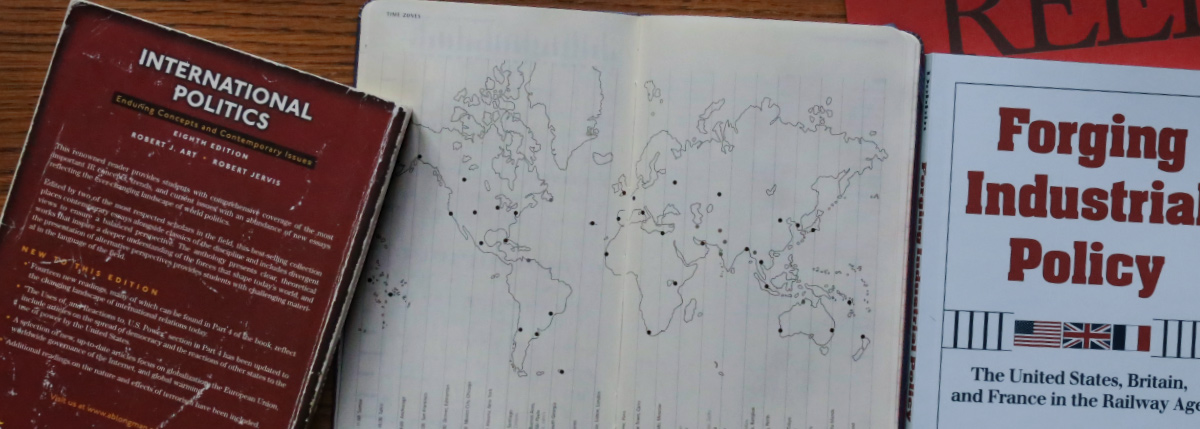ICPS is now international affairs and public policy (IA&PP)! The description below is from the forthcoming 2025/2026 catalog. Students who matriculated prior to Fall 2025 may still apply to major in ICPS, but also may (and are encouraged to) apply to major in IA/PP instead.
What is IA&PP?
The program at Reed in international affairs (IA) and public policy (PP) is designed to meet the academic needs of students interested in pursuing a major involving interdisciplinary work in the areas of globalization, international relations, comparative policy, and international economic development among many other fields. Course offerings reflect the interests of faculty members working in this general domain. Courses applicable to the IA/PP majors come from relevant areas within the departments of anthropology, economics, history, political science, and sociology, and are listed on the IA/PP courses web page; students are expected to concentrate their IA/PP course of study in one of four departments (anthropology, history, political science, or sociology), providing students with a firm disciplinary basis within the social sciences. IA/PP majors will be identified by their major and their home department of concentration as IA-anthropology, IA-history, IA-political science, PP-political science, or PP-sociology.
To be admitted to the IA&PP program, a student must apply to the IA&PP Committee for acceptance to upper-division standing prior to declaring their major. The initial deadline is Monday of the 12th week (11th week of instruction) of the second semester of sophomore year; the final deadline is Friday of the first week of the first semester of junior year. Since acceptance into the IA&PP program is not automatic, applicants should be prepared to pursue an alternative course of study. Please see the major guide for details.
Why IA&PP?
Most topics can be analyzed within individual disciplines. However, some topics, such as those that are frequently studied by IA/PP students (including globalization, international relations, comparative policy, and international economic development), are studied in two or more disciplines, often using distinctly different approaches, theories, or both. Interdisciplinary work attempts to synthesize across or among disciplines in order to understand key issues from multiple different perspectives and provide better policy recommendations by comparing the lenses of two or more disciplinary approaches; creating a more complete model of a phenomenon by connecting together two or more disciplines as inputs, outputs, or both; or using a topic to reveal hidden assumptions of multiple disciplines. IA/PP students write an interdisciplinary thesis, and must consider carefully why and how it should be approached. While the home department assigns an advisor, the committee will assign an orals committee member, typically from a different discipline than the home department. This means that students will receive advice from at least two very different perspectives. See the thesis page for three different models of interdisciplinary approaches, as well as Theses in the Reed College Library Catalog.
IA&PP is not a department, but an interdisciplinary committee composed of faculty from the Division of History and Social Sciences. Like a department, the Committee monitors your progress in meeting your degree requirements. IA&PP is not a substitute for a department; rather, it guides a student through a home department in a particular way. IA/PP students typically take fewer courses in their home department and at least two additional courses in another department, trading depth in the home department for breadth and depth in other disciplines. They are required to take several courses that are designated as IA/PP or relate to a specific subject area that they are interested in studying. Courses in each discipline not on the official IA/PP course lists often satisfy IA/PP major requirements if they are related to a student's particular issue area; please consult the IA&PP chair or relevant committee member. The IA/PP applications are primarily to help students with crafting a program of study relevant to their interests. In some cases, the committee will recommend that a disciplinary program be followed as the most relevant to the student’s interests.
